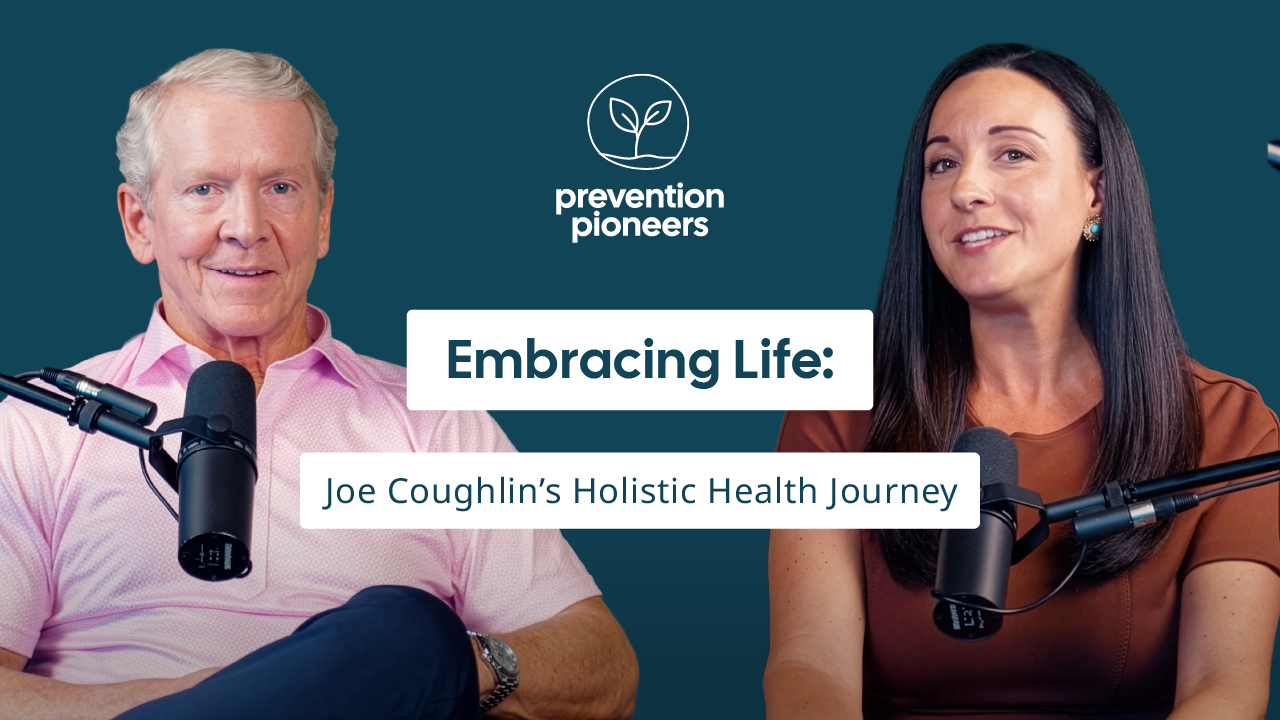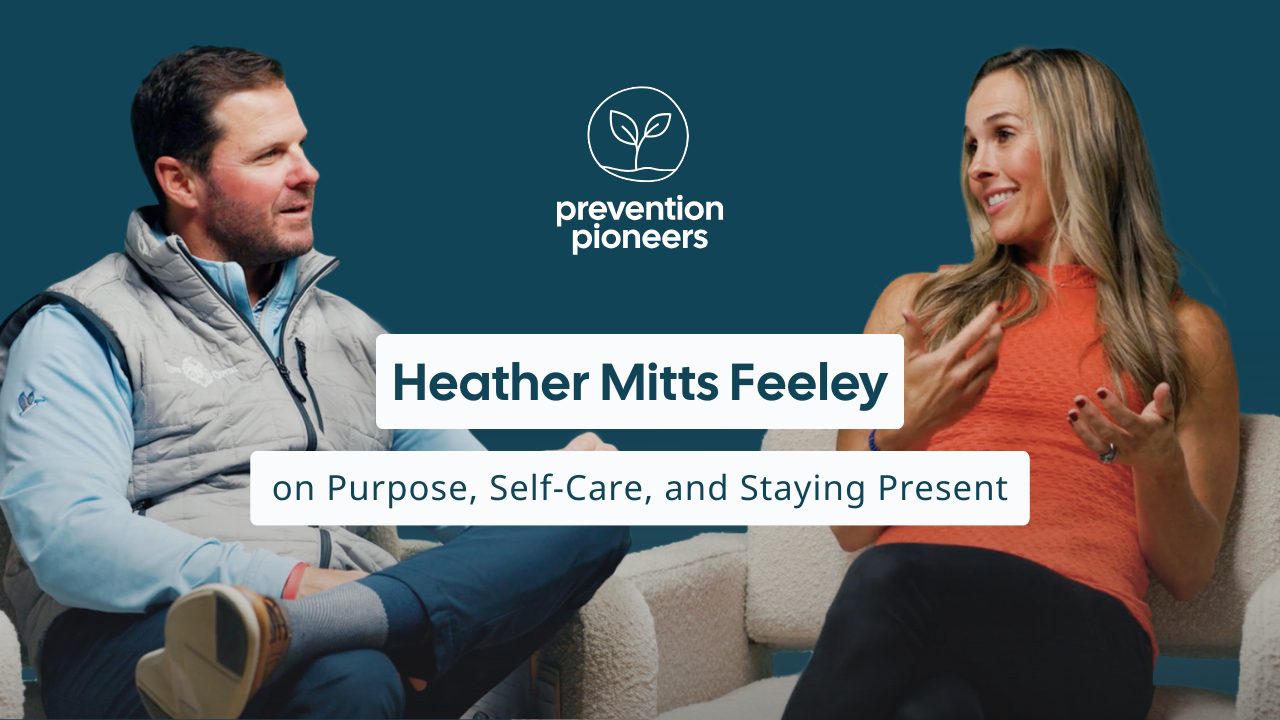Mental Health Literacy at Work & Why We Need It (Now More Than Ever)

Do you ever feel like you’re juggling more than just your work? You’re not alone.
Between balancing the demands of your job, personal challenges, and the constant pressure to show up as your best self, it’s not always easy to thrive at work.
The modern workplace (and life) has made it difficult—if not impossible—to take care of yourself and your mental health.
But the truth is, taking care of your mental health is just as important for your professional success as it is for your personal well-being.
In this episode of Prevention Pioneers, Laura sits with Shira Wilensky, National Practice Leader for Health and Well-being at One Digital.
Shira has spent over fifteen years in the corporate wellness space, helping organizations shift the way they approach employee well-being.
Together, Laura and Shira dive into how workplace mental health has evolved, why emotional support at work is essential, and the generational differences that shape how employees experience mental health today.
Shira opens up about the challenges of being part of the “sandwich generation”—balancing care for aging parents with raising kids—and how that personal stress shows up at work.
Finally, they also talk about the importance of emotional intelligence in leadership, how to make employees feel safe enough to ask for help, and why managers need the right tools to support their teams through tough times.
If you’ve ever felt like you’re barely holding it together or you’re trying to create a work culture that actually supports mental health, this episode is for you.
A Holistic Approach to Wellness
Shira starts by reflecting on how corporate wellness has changed dramatically over the years. In the past, programs were mostly focused on managing healthcare costs and chronic conditions like hypertension and diabetes. Success was often measured in terms of reduced claims costs, and programs were available mainly to large employers and employees with health insurance.
However, today wellness is about so much more. It’s about considering the whole person—not just the employee—considering their life outside of work, their personal challenges, and their mental health.
Shira shares how the corporate wellness landscape has evolved to include emotional well-being, resilience, and support for personal challenges, which inevitably impact work performance.
For example, Shira explains that events like the loss of a loved one or the stress of caring for aging parents can severely affect an employee’s productivity. These challenges may not show up in the medical claims data, but they show up in the employee’s ability to focus, perform, and engage with their work.
A holistic approach to wellness considers all of these factors, offering support for the whole person—not just in times of crisis, but year-round.
How COVID-19 Changed the Conversation
One of the most significant shifts Shira has seen over the years is how mental health is now viewed and supported in the workplace.
COVID-19 played a major role in breaking down the stigma around mental health, with more employees openly discussing their struggles and seeking help.
In the past, employees were hesitant to admit they needed support, fearing it would affect their career progression or be seen as a weakness. But the pandemic has completely changed that. Now, more people are acknowledging their mental health challenges, and companies are responding by providing resources to help them cope.
However, the challenge now is figuring out what really works—because it’s not just about offering resources, but about making sure those resources are meaningful, accessible, and effective.
It’s about finding solutions that actually support employees’ mental well-being, whether that’s through therapy, flexible work hours, stress management tools, or simply creating a workplace where employees feel safe discussing mental health.
Emotional Intelligence for Leaders
Leaders who model emotional intelligence—who can be empathetic, self-aware, and willing to acknowledge their own struggles—create a work environment where employees feel safe enough to be vulnerable.
Middle managers, in particular, are often the unsung heroes when it comes to supporting employee mental health. They are on the front lines, balancing their own well-being while also being the first to notice when team members are struggling.
However, many middle managers lack the training and tools to effectively address mental health concerns. This is why we need to provide managers with the right support, including training on emotional intelligence and how to create a psychologically safe environment, so they can better recognize and respond to their team’s mental health needs.
Generational Shifts in Mental Health Conversations
Different generations approach mental health differently at work. Younger employees are now leading the charge in embracing vulnerability and pushing for more emotionally intelligent workplaces. They are demanding not just perks, but environments where they feel supported and seen as whole people.
On the other hand, older generations may not be as comfortable with this shift. Many of these generations never had the same mental health support or openness in the workplace, and they may struggle with the new expectations around emotional transparency.
But rather than resisting the change, it’s important to embrace it—and employers can help achieve that through using the right tools.
Final Thoughts
True wellness in the workplace is about more than just offering perks or programs—it’s about creating a culture that prioritizes mental health and supports the whole person.
As the conversation around mental health continues to evolve, employers must recognize the importance of mental health literacy. This means not only providing employees with the resources they need but also educating them about how to recognize and navigate mental health challenges.
Listen to the full episode now to hear more about how to create a truly emotionally intelligent workplace and employees that understand their mental health challenges.
Prevention Pioneers is a podcast for leaders who are committed to using cutting-edge preventative wellness strategies to shift the narrative of mental health, maximize engagement, and minimize absenteeism
Don’t forget to follow/subscribe so you never miss an episode!


